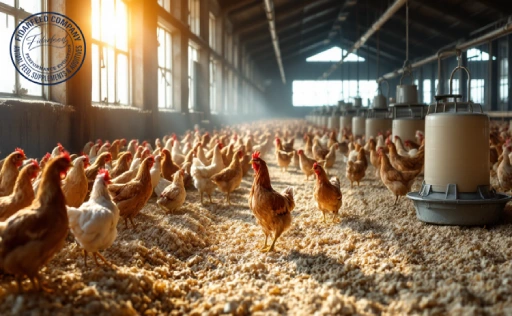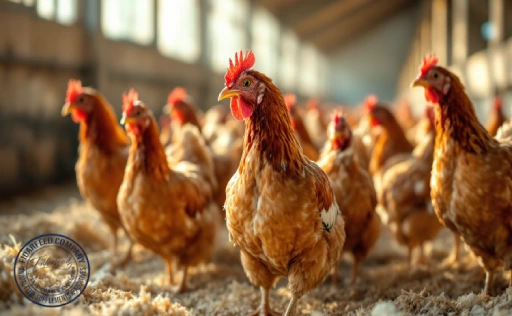
Immune Boosters for Shrimp are becoming essential tools in modern aquaculture. As shrimp farming grows to meet global demand, disease outbreaks like White Spot Syndrome and EMS pose serious threats. Using the right additives can strengthen shrimp immunity, reduce antibiotic use, and improve overall survival. This guide explores what really works—and what doesn’t.
Understanding Immune Boosters for Shrimp: What Are They and How Do They Work?
Immune boosters are substances or additives designed to stimulate or enhance the immune response of shrimp. These can be natural or synthetic compounds added to feed or water. Their primary goal is to prepare the shrimp’s immune system to respond more effectively to pathogens. Unlike antibiotics, which act directly against bacteria, immune boosters equip the shrimp’s internal defense systems to handle infections on their own. Think of them as a way of training your shrimp to become better fighters against disease, rather than relying on a medic after the damage is done.
Natural vs. Synthetic Additives: Which Immune Boosters Are Better for Shrimp?
There’s ongoing debate in the aquaculture community about whether natural or synthetic additives are more effective. Natural immune boosters include substances like garlic extract, turmeric, seaweed, probiotics, and beta-glucans derived from yeast.
Learn more about: Processed Protein Concentrate
These often have the added benefit of being environmentally friendly and free of chemical residues. On the other hand, synthetic additives such as immuno-stimulant peptides or chemically-engineered compounds may offer more targeted action and quicker results. However, concerns about long-term safety and resistance buildup still exist. In practice, many shrimp farmers opt for a combination approach, using natural additives as a daily part of feed and supplementing with synthetics during high-stress periods.
Proven Immune Boosters for Shrimp Backed by Science
Several additives have shown strong results in both lab and field trials:
- Beta-glucans: Found in yeast cell walls, beta-glucans enhance the innate immune system. Studies show they significantly improve resistance to WSSV.
- Probiotics: These live bacteria improve gut health and immune function. Species like Bacillus subtilis are common in commercial shrimp diets.
Learn more about: Healthy Shrimp, Higher Yields: Key Nutrients for Success
- Herbal extracts: Garlic, neem, and turmeric extracts have shown antimicrobial properties and help reduce pathogen loads.
- Vitamin C and E: These antioxidants boost immune response and protect shrimp from oxidative stress.
- Immuno-stimulant peptides: Synthetic peptides that activate immune cells in shrimp, though more research is still needed.
Common Additives That May Not Work: What to Avoid in Shrimp Farming
Not all additives deliver what they promise. Some lack proper scientific validation, while others may even disrupt shrimp health when used excessively. For instance, overuse of antibiotics as an “immune booster” can lead to resistance and reduced effectiveness over time.
Learn more about: Reducing Fish Mortality in Aquaculture with Probiotics
Additives without a clear label or third-party testing should also be avoided. Always check for published research, field data, and peer reviews before adopting new products into your shrimp farming routine.
How to Choose the Right Immune Boosters for Your Shrimp Farm
The right choice depends on several factors:
- Farming environment: Is it indoor, outdoor, or biofloc? Each setup has different stressors.
- Shrimp species: Litopenaeus vannamei may respond differently than Penaeus monodon.
Learn more about: Discover Zeolite Benefits for Health in modern animal breeding: From Cattle to Fish
- Health history: Farms with a history of disease outbreaks may benefit from stronger, more targeted additives.
- Budget: Some solutions may be cost-effective but less potent; others might be pricey but long-lasting. Consult with aquaculture experts and veterinarians to tailor a plan that fits your farm’s specific needs.
Best Practices for Administering Immune Boosters to Shrimp
Additives are only effective when used properly:
- Feed incorporation: Mix additives evenly into pellets or use coated feeds to prevent leaching.
- Water treatment: For certain boosters, especially probiotics, direct water application can be effective.
- Timing: Apply immune boosters during high-risk periods such as molting, stocking, or sudden temperature changes.
- Dosage: Follow manufacturer guidelines strictly. Overuse can harm shrimp or pollute the environment. Record your results to track performance and refine your approach over time.
The Role of Additives in Preventing Common Shrimp Diseases
Additives work best as a preventive tool, not a cure. They help create a strong first line of defense against diseases like:
- WSSV: Shrimp with improved immunity are less likely to become infected.
- EMS/AHPND: Immune boosters support better gut health, which reduces the risk of Vibrio infections.
Learn more about: Reducing Fish Mortality in Aquaculture with Probiotics
- Fungal diseases: Natural antifungal additives like neem extract show promise in managing fungal outbreaks. Using a holistic approach that combines good management with immune-boosting feed creates a more disease-resistant shrimp population.
Cost vs. Benefit: Are Immune Boosters for Shrimp Worth the Investment?
Some farmers hesitate to use immune boosters due to cost. But consider this: a single disease outbreak can wipe out weeks or months of progress. Investing in proven additives can significantly reduce mortality rates, improve growth performance, and increase overall profitability.
Learn more about: The Ultimate Guide to Broiler House Ventilation
When used strategically, they offer a high return on investment. Real-world case studies have shown that farms using a consistent immune-boosting program report 15-30% higher survival rates.
Future Trends in Shrimp Immune Boosters and Functional Additives
Research in aquaculture nutrition is moving fast. We’re seeing the rise of:
- Nano-additives: Engineered at the microscopic level to deliver precise immune support.
- Microbiome-targeted feeds: Formulated to balance gut flora and enhance natural immunity.
Learn more about: Feeding Farmed Fish: Best Practices and Nutritional Requirements
- Functional feeds: Complete diets containing immune boosters, vitamins, and probiotics in one package. Sustainability is also shaping innovation. Expect to see more plant-based, organic, and eco-certified immune boosters hitting the market in the near future.
Conclusion
In today’s high-stakes shrimp farming environment, immune boosters are more than just a trend—they’re a necessity. By choosing the right additives, applying them correctly, and staying informed through science-backed data, shrimp breeders can boost health, minimize losses, and maximize returns. Whether you’re running a large commercial operation or just starting out, smart use of immune boosters is a game changer.
Have thoughts or questions on immune boosters for shrimp? Drop a comment below or share your experience with additives in your shrimp farm. Let’s grow stronger together.







